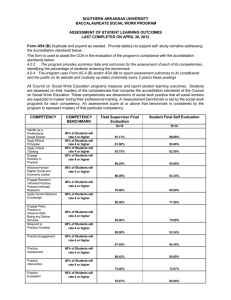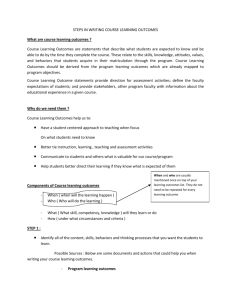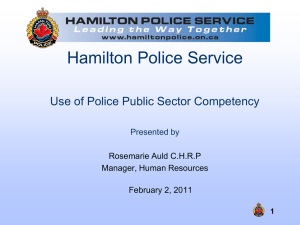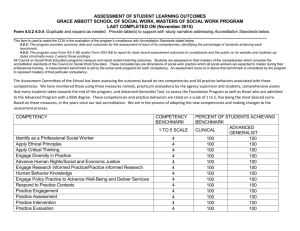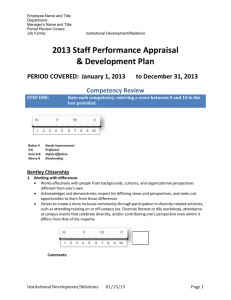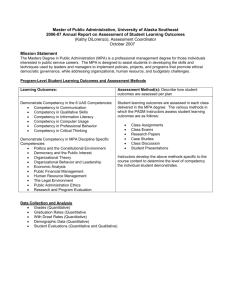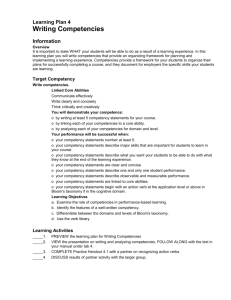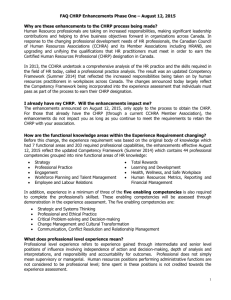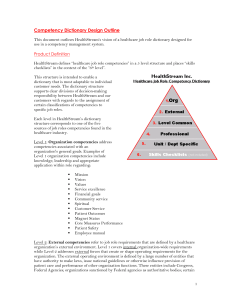General Education Assessment Schedule
advertisement
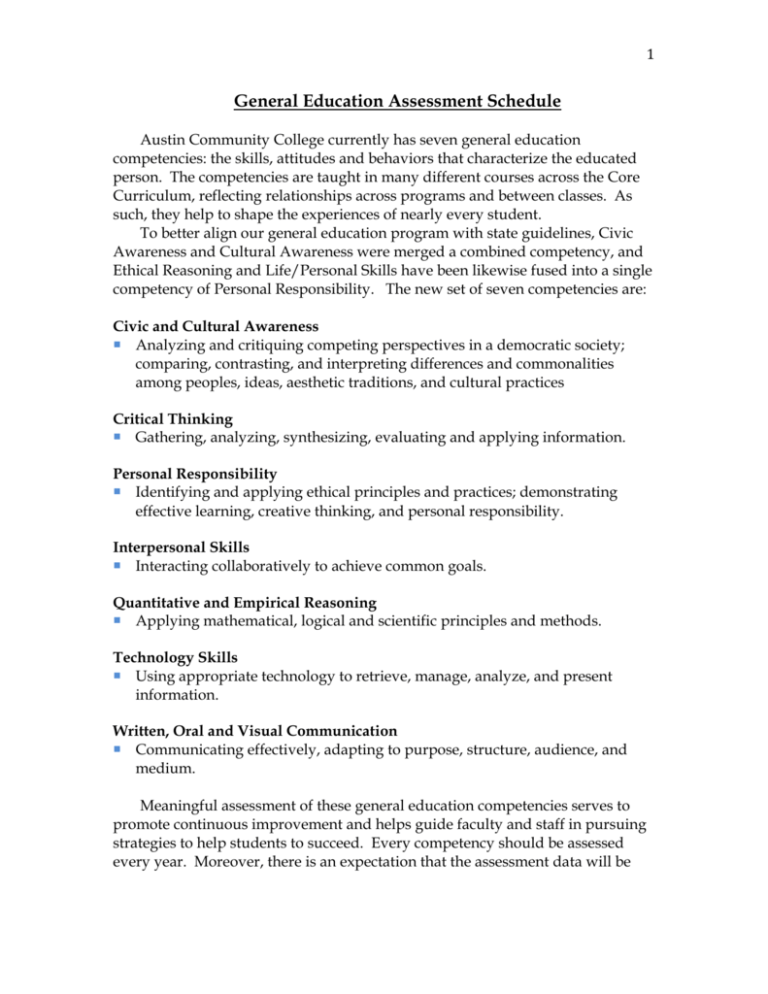
1 General Education Assessment Schedule Austin Community College currently has seven general education competencies: the skills, attitudes and behaviors that characterize the educated person. The competencies are taught in many different courses across the Core Curriculum, reflecting relationships across programs and between classes. As such, they help to shape the experiences of nearly every student. To better align our general education program with state guidelines, Civic Awareness and Cultural Awareness were merged a combined competency, and Ethical Reasoning and Life/Personal Skills have been likewise fused into a single competency of Personal Responsibility. The new set of seven competencies are: Civic and Cultural Awareness Analyzing and critiquing competing perspectives in a democratic society; comparing, contrasting, and interpreting differences and commonalities among peoples, ideas, aesthetic traditions, and cultural practices Critical Thinking Gathering, analyzing, synthesizing, evaluating and applying information. Personal Responsibility Identifying and applying ethical principles and practices; demonstrating effective learning, creative thinking, and personal responsibility. Interpersonal Skills Interacting collaboratively to achieve common goals. Quantitative and Empirical Reasoning Applying mathematical, logical and scientific principles and methods. Technology Skills Using appropriate technology to retrieve, manage, analyze, and present information. Written, Oral and Visual Communication Communicating effectively, adapting to purpose, structure, audience, and medium. Meaningful assessment of these general education competencies serves to promote continuous improvement and helps guide faculty and staff in pursuing strategies to help students to succeed. Every competency should be assessed every year. Moreover, there is an expectation that the assessment data will be 2 used to develop action plans, which will, in turn, be evaluated to determine their impact. At the same time, there is a critical need to not overburden faculty and department chairs with demands that are overwhelming. As such, the following schedule has been created so as to promote less frequent but more meaningful assessment, while simultaneously meeting the expectations of both SACS and the Coordinating Board. Wherever possible, disciplines are also encouraged to address two competencies with one assessment, e.g. a writing assignment that requires critical thinking. The three years of assessment are labeled, respectively, “1”, “2”, or “3”. Because this schedule will be implemented beginning in the ’13-’14 academic year, that would be “Year 1”. Courses in each component area will assess the stated competency in the designated year if they teach them. For example, in Year 1, courses in: English Rhetoric/Composition will assess Personal Responsibility Communications will assess Critical Thinking and Written, Oral, and Visual Communications Mathematics will assess Critical Thinking and Quantitative and Empirical Reasoning Natural Sciences will assess Personal Responsibility and Interpersonal Skills Humanities will assess Civic & Cultural Awareness, Interpersonal Skills, and Technology Skills Visual & Performing Arts will assess Civic & Cultural Awareness and Technology Skills History will assess Personal Responsibility Government will assess Critical Thinking and Written, Oral, and Visual Communications Other Social & Behavioral Sciences will assess Technology Skills and Written, Oral, and Visual Communications In each case, only those courses in which the designated competency is identified as being addressed will be expected to assess it. So, for example, only those courses in the Humanities that teach Technology Skills will be expected to assess it in Year 3. The Texas Higher Education Coordinating Board has recently adopted new guidelines for the Core Curriculum with which institutions will have to comply by fall 2014. These include requirements that courses in certain component areas address particular competencies. These expectations are included in the accompanying chart. Green boxes are those in which every course in a given component area addresses that competency. Gray boxes are those in which at least half of the courses address that competency. White boxes indicate that relatively few courses in that component area address that competency. 3 3 1 2 2 3 1 3 3 2 1 1 3 2 1 5- Quantitative and Empirical Reasoning 7- Written, Oral, and Visual Communication Mathematics 6- Technology Skills 2 4- Interpersonal Skills Communications 3- Personal Responsibility English Rhetoric/ Composition 2 - Critical Thinking Component Areas 1 - Civic & Cultural Awareness General Education Competencies Natural Sciences 3 2 1 1 2 3 3 Humanities 1 2 3 1 3 1 2 Visual & Performing Arts 1 3 2 3 1 2 History 2 3 1 3 Government 3 1 2 1 Other Social and Behavioral Sciences 3 2 Year 1 is AY ’13 – ‘14 Year 2 is AY ’14 – ‘15 Year 3 is AY ’15 – ‘16 3 1 1


